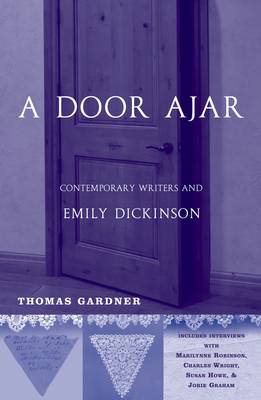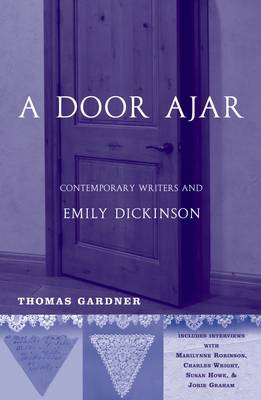
- Afhalen na 1 uur in een winkel met voorraad
- Gratis thuislevering in België vanaf € 30
- Ruim aanbod met 7 miljoen producten
- Afhalen na 1 uur in een winkel met voorraad
- Gratis thuislevering in België vanaf € 30
- Ruim aanbod met 7 miljoen producten
Zoeken
€ 96,95
+ 193 punten
Omschrijving
Thomas Gardner argues in this original study that we are just beginning, as a culture, to understand the far-reaching implications of Emily Dickinson's work. Looking at the way quite different writers have enacted and fleshed-out crucial aspects of her poetry, Gardner gives us a Dickinson for our times. Beginning with the work of Lucie Brock-Broido, Alice Fulton, Kathleen Fraser, and Robert Hass, Gardner moves on to analytical chapters and fully developed conversations with four writers in whose work he finds the fullest extension of Dickinson's legacy. The interviews with these four--Marilynne Robinson, Charles Wright, Susan Howe, and Jorie Graham--provide a particularly intimate look at writers at work. In returning to Dickinson's work, Gardner observes, contemporary writers have powerfully extended what he calls her poetics of broken responsiveness in which an acknowledgment of limits leads, paradoxically, to a deep engagement with a world beyond our capacity to master or possess. In the hands of our most important poets and novelists, Dickinson's "emptying of the articulate self" has become a potent means of addressing some of our culture's fundamental erotic, religious, philosophical, and social questions. A Door Ajar makes visible the Dickinson that will matter to writers and readers over the next several decades.
Specificaties
Betrokkenen
- Auteur(s):
- Uitgeverij:
Inhoud
- Aantal bladzijden:
- 270
- Taal:
- Engels
Eigenschappen
- Productcode (EAN):
- 9780195174939
- Verschijningsdatum:
- 17/08/2006
- Uitvoering:
- Hardcover
- Formaat:
- Genaaid
- Afmetingen:
- 165 mm x 242 mm
- Gewicht:
- 535 g

Alleen bij Standaard Boekhandel
+ 193 punten op je klantenkaart van Standaard Boekhandel
Beoordelingen
We publiceren alleen reviews die voldoen aan de voorwaarden voor reviews. Bekijk onze voorwaarden voor reviews.











